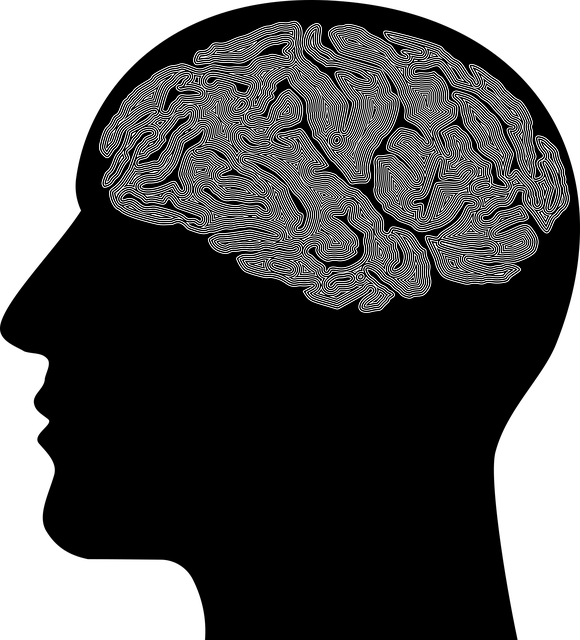Understanding Mental Health Data through tailored surveys, clinical interviews, and social media analytics is crucial for therapeutic and research efforts in niche communities like Lone Tree Polyamorous and Open Relationships Therapy. Analyzing trends reveals unique challenges and destigmatizes polyamorous relationships. Technology streamlines data collection and analysis, allowing therapists to create personalized interventions. Ethical guidelines, including informed consent and patient anonymity, are vital to protect participants' privacy and autonomy. This therapy model promotes mental well-being, inclusivity, and open dialogue within diverse family dynamics, breaking down societal barriers.
Mental health data analysis is a powerful tool for understanding complex psychological trends. This article explores the intricacies of interpreting mental health data, from collection and storage methods to advanced analytical techniques. We delve into the role of technology in uncovering hidden insights and discuss ethical considerations crucial for responsible data handling. Through case studies like Lone Tree Polyamorous and Open Relationships Therapy, we demonstrate the practical applications and potential impacts of data-driven mental health interventions.
- Understanding Mental Health Data: Collection and Storage
- Analyzing Trends: Uncovering Insights from Data
- The Role of Technology in Data Interpretation
- Ethical Considerations in Mental Health Data Analysis
- Case Studies: Lone Tree Polyamorous and Open Relationships Therapy
Understanding Mental Health Data: Collection and Storage

Understanding Mental Health Data is a crucial step in any therapeutic or research endeavor, especially within niche communities like Lone Tree Polyamorous and Open Relationships Therapy. The first challenge lies in collecting accurate and comprehensive data. This involves creating structured surveys or questionnaires tailored to capture specific mental health indicators relevant to these unique relationships. Sensitivity and cultural awareness are paramount when designing tools to ensure participants feel comfortable sharing intimate details, fostering honest responses.
Effective data collection goes beyond self-reporting. It includes various methods such as clinical interviews, peer support group discussions, and even social media analytics (with user consent) from popular Mental Wellness Podcast Series Production platforms. Once gathered, this data needs secure storage solutions to protect participant privacy. Cloud-based systems with robust encryption ensure that information is accessible only to authorized personnel while maintaining confidentiality, a critical aspect in promoting Public Awareness Campaigns Development for mental wellness.
Analyzing Trends: Uncovering Insights from Data

Analyzing trends within mental health data offers a powerful tool for understanding and addressing community needs, especially in unique relationships like polyamorous and open relationships. By examining patterns in search queries related to “Lone Tree Polyamorous and Open Relationships Therapy,” researchers can identify prevalent concerns and misconceptions. This process provides an opportunity to destigmatize these relationship structures and offer tailored support through specialized services.
Through data analysis, it becomes possible to track the evolution of mental health awareness, such as increased interest in compassion cultivation practices and trauma support services among this demographic. Such insights can guide therapists and counselors in Lone Tree to develop targeted interventions, ensuring that resources are accessible and relevant to individuals navigating polyamorous or open relationships while maintaining their emotional well-being.
The Role of Technology in Data Interpretation

In the realm of mental health data analysis and interpretation, technology plays a pivotal role in enhancing therapeutic outcomes. Advanced tools and software enable therapists to efficiently process and interpret vast amounts of information gathered from clients, facilitating more accurate diagnoses and personalized treatment plans. For instance, digital platforms can streamline the collection of qualitative and quantitative data, including insights into individuals’ emotional well-being promotion techniques and social skills training needs.
Integrating technology in Lone Tree Polyamorous and Open Relationships Therapy has proven to be a game-changer. It allows therapists to access real-time data, enabling them to provide crisis intervention guidance tailored to each client’s unique situation. By leveraging these technological advancements, mental health professionals can ensure more effective support for clients navigating complex relationships and emotional challenges, ultimately fostering healthier and more fulfilling lives.
Ethical Considerations in Mental Health Data Analysis

In the realm of mental health data analysis, ethical considerations are paramount, especially when exploring sensitive topics like Lone Tree Polyamorous and Open Relationships Therapy. As researchers delve into this niche area, they must navigate complex issues surrounding privacy, consent, and potential harm or benefit to participants. The onus is on therapists, scientists, and analysts to ensure the data collected respects the autonomy and dignity of individuals while fostering inner strength development. This involves obtaining informed consent, protecting patient identities, and justifying any use of personal information for the advancement of mental health policy analysis and advocacy.
Furthermore, the interpretation of such data requires a nuanced approach, especially when dealing with unconventional relationship structures. It’s crucial to avoid stigmatization and instead focus on the unique challenges and strengths these relationships can bring. Mental Health Policy Analysis and Advocacy can benefit from these insights, leading to more inclusive and effective strategies for stress management workshops organization, ultimately enhancing support systems for diverse communities.
Case Studies: Lone Tree Polyamorous and Open Relationships Therapy

Lone Tree Polyamorous and Open Relationships Therapy offers a unique perspective on mental health data analysis by focusing on alternative relationship structures. This case study provides valuable insights into how diverse family dynamics can impact an individual’s mental well-being, challenging traditional norms and stereotypes surrounding marriage and intimacy. Through in-depth therapy sessions, researchers have been able to gather data that refutes the notion of mental illness stigma within polyamorous communities.
The implementation of a community outreach program specifically tailored for these relationships has led to significant mental illness stigma reduction efforts. By fostering open dialogue, the therapy group has enhanced confidence boosting strategies, encouraging individuals to embrace their personal choices. This approach not only contributes to improved mental health outcomes but also plays a crucial role in breaking down societal barriers and promoting inclusivity in mental health discussions, alongside other initiatives like Community Outreach Program Implementation.
Mental health data analysis is a powerful tool for understanding complex human experiences, as demonstrated by the case study of Lone Tree Polyamorous and Open Relationships Therapy. By employing advanced techniques and ethical practices, professionals can uncover valuable insights from collected data. This process not only enhances our knowledge of mental health trends but also enables tailored interventions. As technology continues to evolve, the interpretation of this data becomes more accessible, promising improved support for individuals seeking help. However, it is crucial to balance innovation with privacy and ethical considerations to ensure a safe and effective mental health care system.













